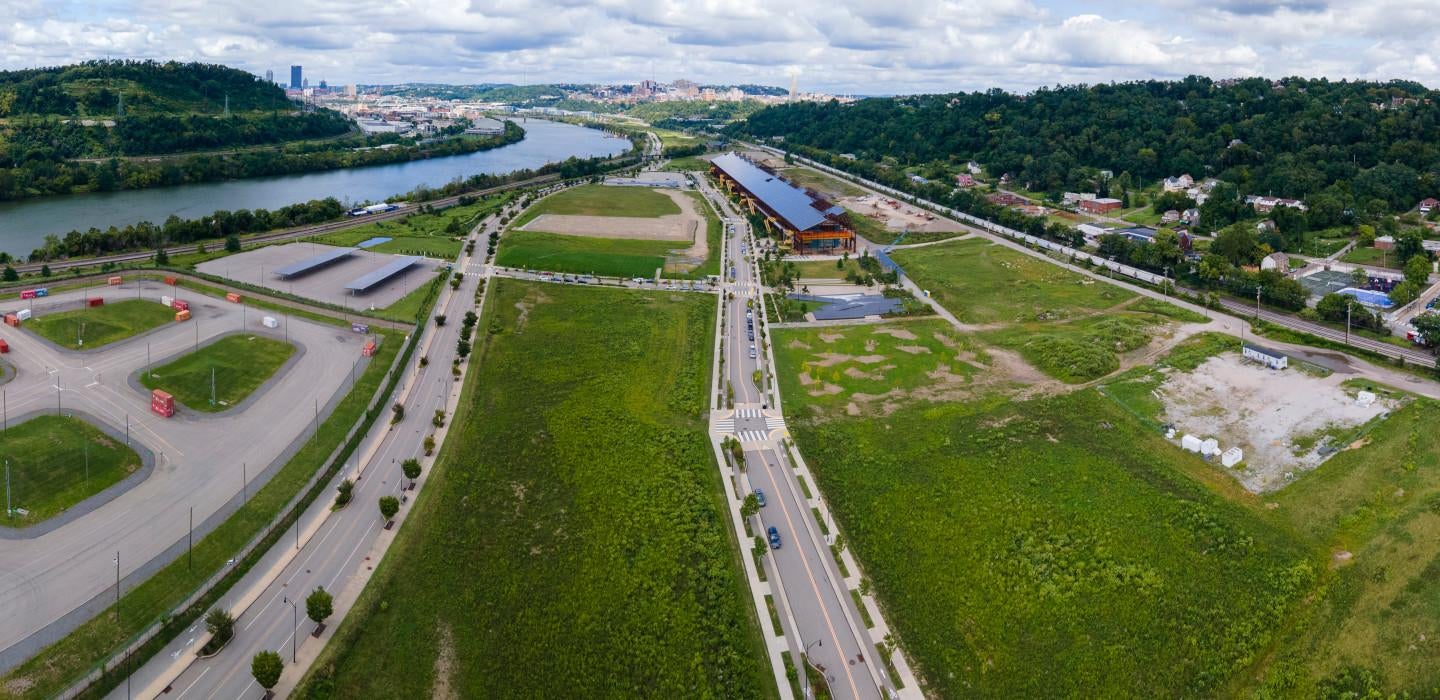
Subscribe to Pittwire Today
Get the most interesting and important stories from the University of Pittsburgh.With regional demand growing for workers in the life sciences, the University of Pittsburgh’s Office of Engagement and Community Affairs on May 13 brought together representatives from academia, industry and workforce development to present findings on those opportunities — and ensure they are available to community members no matter their level of education.
Their report examined the potential of jobs “that will provide family-sustaining opportunities for people who may not have four-year college degrees,” said Lina Dostilio, Pitt vice chancellor of engagement and community affairs, opening the event. “Our job in the near term is to think about how we build out the right ecosystem, harnessing the right connections, in order to make that real.”
The event was held in Hazelwood Green, just a few blocks from where Pitt BioForge, a biomanufacturing innovation facility, will begin construction this year. Dostilio said she sees BioForge as a way to connect people in the Greater Hazelwood neighborhood to the broader life sciences ecosystem that’s growing in Pittsburgh.
[Read more: A Brookings Institution event highlighted Pittsburgh’s growth as a life sciences leader]
The question is how to make those connections. Seeing a gap in the available regional data, the Office of Engagement and Community Affairs partnered with the Office of Innovation and Entrepreneurship to commission a report from advisory firm U3 Advisors to identify pathways to jobs in the life sciences and related industries that are well-paying, poised to grow in Pittsburgh and accessible to those without college degrees.
Tatianna Swenda, U3 Advisors’ vice president and anchor strategies leader, presented the report’s findings to attendees. Pulling from Pennsylvania Department of Labor data and interviews, the team created a dashboard that shows how different jobs rate on criteria like growth potential, education requirements and whether they provide a living wage.
In the top industries they identified — medical devices, research, testing and medical laboratories — the report predicts a total regional demand of close to 7,000 jobs by 2030, with an additional 36,000 over the same period in related industries like construction, sales and IT. Making those jobs available to community members will take planning, collaboration and funding for training and placement programs as well as providing support services for trainees, Swenda stressed.
[Read more: This Pitt-supported free job training program is filling a dire need in research]
Pitt’s attention to life science employment opportunities is part of its overall effort to establish one of its Neighborhood Commitments in the Greater Hazelwood area. For the past few years, Pitt has been working with community leaders to identify opportunities for the University to contribute to the goals outlined in the Greater Hazelwood Community Master Plan. Employment and workforce development is one of these goals.
The first step, though, was simply mapping out job pathways and getting the right players in a room together. Heidi Ward, director of planning for Pitt’s Office of Engagement and Community Affairs’ community and life sciences integration, explained that Pitt’s neighborhood commitment in Greater Hazelwood draws a link between Pitt’s strength in the life sciences and more than two-decade history of community engagement in Greater Hazelwood.
“By combining these two efforts, we really get the next phase of our community commitment, which is community-led efforts to identify educational economic benefits in the emergent life sciences industry,” she said. “How can we ensure that people who live six to eight blocks away can benefit from this opportunity?”
Photography by Tom Altany


